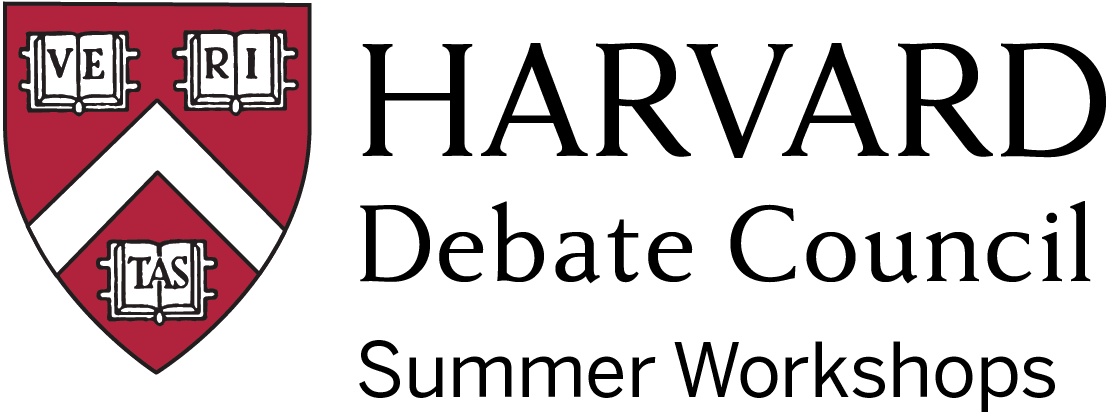The workshop should be a positive learning experience for all participants. Our aim is to provide an advanced academic program for mature high school students. All participants agree to respect the rights and feelings of other workshop students and staff. These rules do not pretend to be all-inclusive. It goes without saying that the workshop is not a “sanctuary” for conduct that violates state and/or federal law.
Our staff is here to teach and will not be distracted by students who are unable to work and live responsibly with others. Therefore, students who violate our communal norms will be expelled from the workshop. When a student is expelled, a workshop administrator will notify his or her parents or guardians and will continue to supervise the affected student for no more than 24 hours after parents have been contacted; it is the parents’ responsibility to arrange for the student’s immediate transportation home from the workshop. Expelled students will not receive any refund of tuition, room, board, or other workshop fees.
Minor Offenses that unreasonably inconvenience other students or staff members will be dealt with through consultation. Staff will first consult with the student about his or her behavior. If that consultation fails to correct the problem, staff will consult with parents. Should that fail to correct the problem, the student will be expelled. Minor offenses include, but are not limited to, lateness to scheduled activities, roll-calls, or room-checks; excessive messiness or noisiness in University libraries, classrooms, dining halls, dormitories or common areas; refusal to participate in scheduled academic activities, such as practice debates and lab drills; verbal harassment of others; disrespectful speech or affect directed to staff; possession or use of tobacco, inappropriate use of Harvard property, including computer networks; failure to follow the following rules:
Rules of Conduct
- Attendance at all classes and organized functions is required. Absence from the campus for periods that include classes or functions must be approved by parents and workshop administration in advance, in writing.
- Students agree to comply with all rules and regulations pertaining to living in Harvard residential housing. They must be in their assigned residence hall by 10:00 p.m., unless the hours have been specifically extended for a given night. The doors will be locked from 10:00 pm until the next morning. Absence from the residence hall during these times is not permitted without express written, parental consent approved by the residence hall administrator.
- Students agree to refrain from overt public displays of affection for the entirety of the workshop. This includes sitting on laps, groping, cuddling, lengthy kissing or hugging, etc. At no time are students allowed to leave designated areas for “privacy”. Permitted affection includes holding hands, or a quick kiss and hug – less than 2 seconds.
- Students are expected to dress in a manner appropriate for an educational setting. Clothing will be deemed inappropriate if it is disturbing to other students/faculty or in any way interferes with the educational process. This includes, but is not limited to, bare midriffs, short shorts, exposed undergarments, low slung trousers and other clothing which is offensive and/or violates acceptable standards of dress. Students are prohibited from wearing clothing and accessories that: have slogans, comments or designs that are obscene, lewd or vulgar; advertise alcoholic beverages, tobacco products or illegal drugs; are directed against or intended to demean individuals based on sex, gender, sexual orientation, race, color, ancestry national origin, ethnicity, religion, etc. Students wearing clothing deemed inappropriate will be asked to change.
- Alcoholic beverages and narcotics or other controlled substances are not permitted except with valid prescriptions that have been noted on the accompanying prescription drug form. Students found to have bought, consumed, used, or possessed such items or who are found in possession thereof will be immediately dismissed from the program. Possession is defined as anyone who has actual physical contact of any kind with these substances OR if found to be knowledgeable of the possession of these substances by others does not immediately remove himself or herself from the situation and inform a staff member. The Harvard Debate Council Summer Workshops maintains a zero tolerance policy in regards to illicit substances.
- The possession or use of firearms, ammunition, BB guns, air rifles, firecrackers, explosives, sling-shots, knives (including pocket knives), or other weapons of any description, for any purpose is prohibited. Any violation of this rule will result in immediate dismissal from the institute.
- Under no circumstances may a student operate a motor vehicle. Under no circumstances may a student get into or on a moving vehicle, unless (a) the ride is part of an official, organized workshop group activity, or (b) the student has written parental permission approved by the residence hall administrator.
- Students agree to remain within the boundaries designated by the workshop staff during the time that they are not in their residence hall or instructional building. A map and description of the acceptable boundaries will be provided to the students. There are two exceptions to the geographical limits. (A) The student has written parental permission approved by the residence hall administrator to travel outside of the official boundaries. (B). On days when students are expressly allowed to venture outside of the boundaries, they must comply with regulations regarding signing-out, checking-in with staff, and leaving contact information.
- Students may only leave the residential and academic area in groups of three (3) or more, even within the boundary area, unless the student has written parental permission approved by the residence hall administrator . Students agree to abide by this rule at all times.
